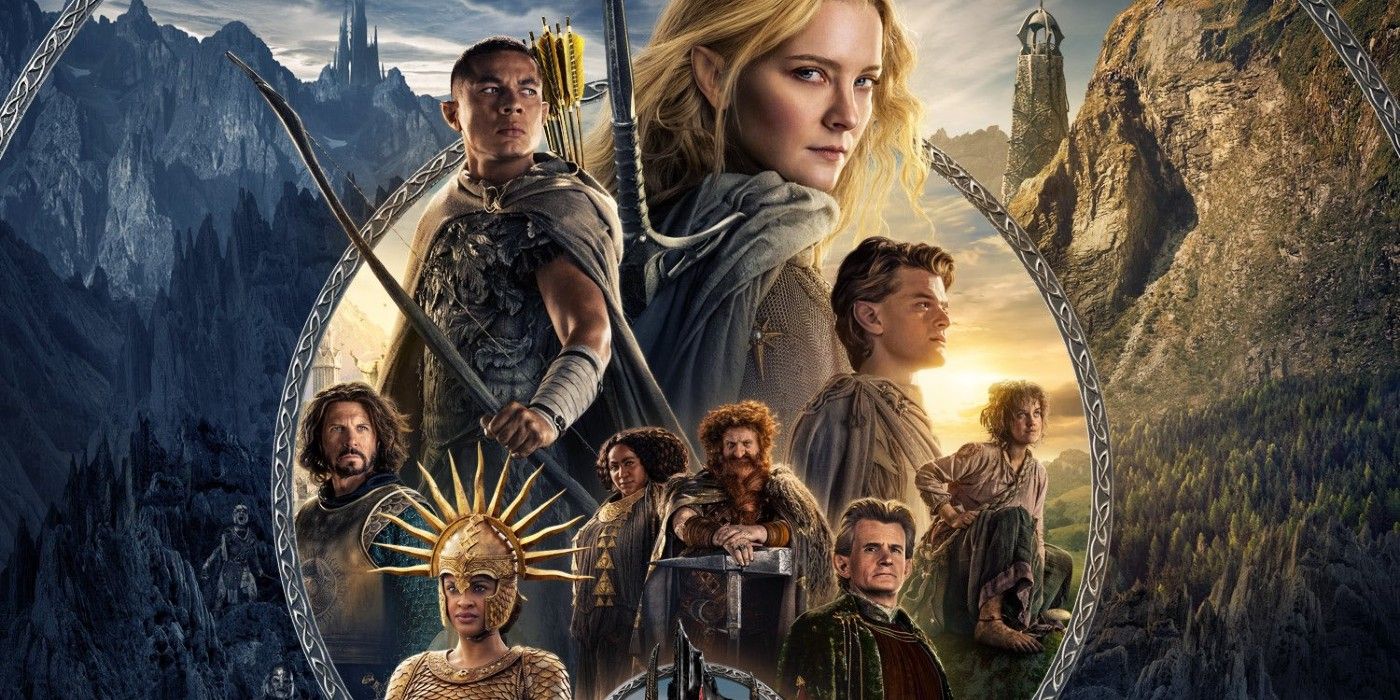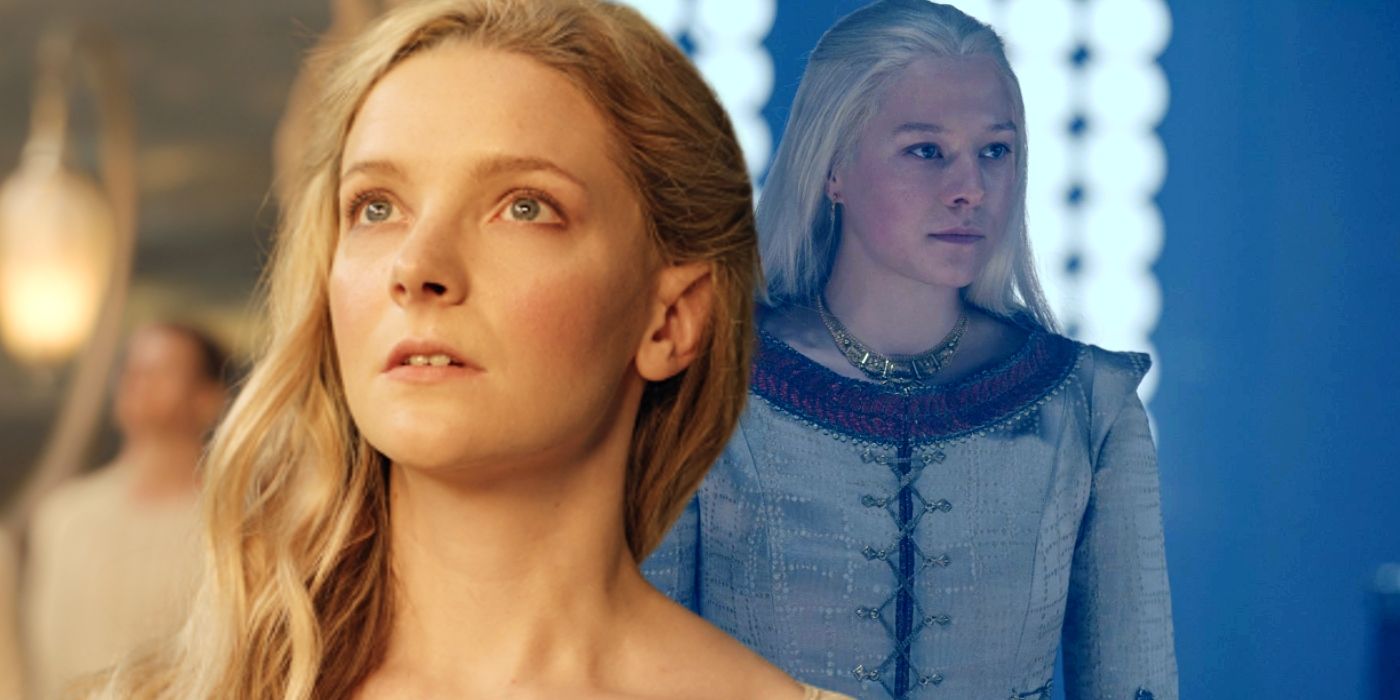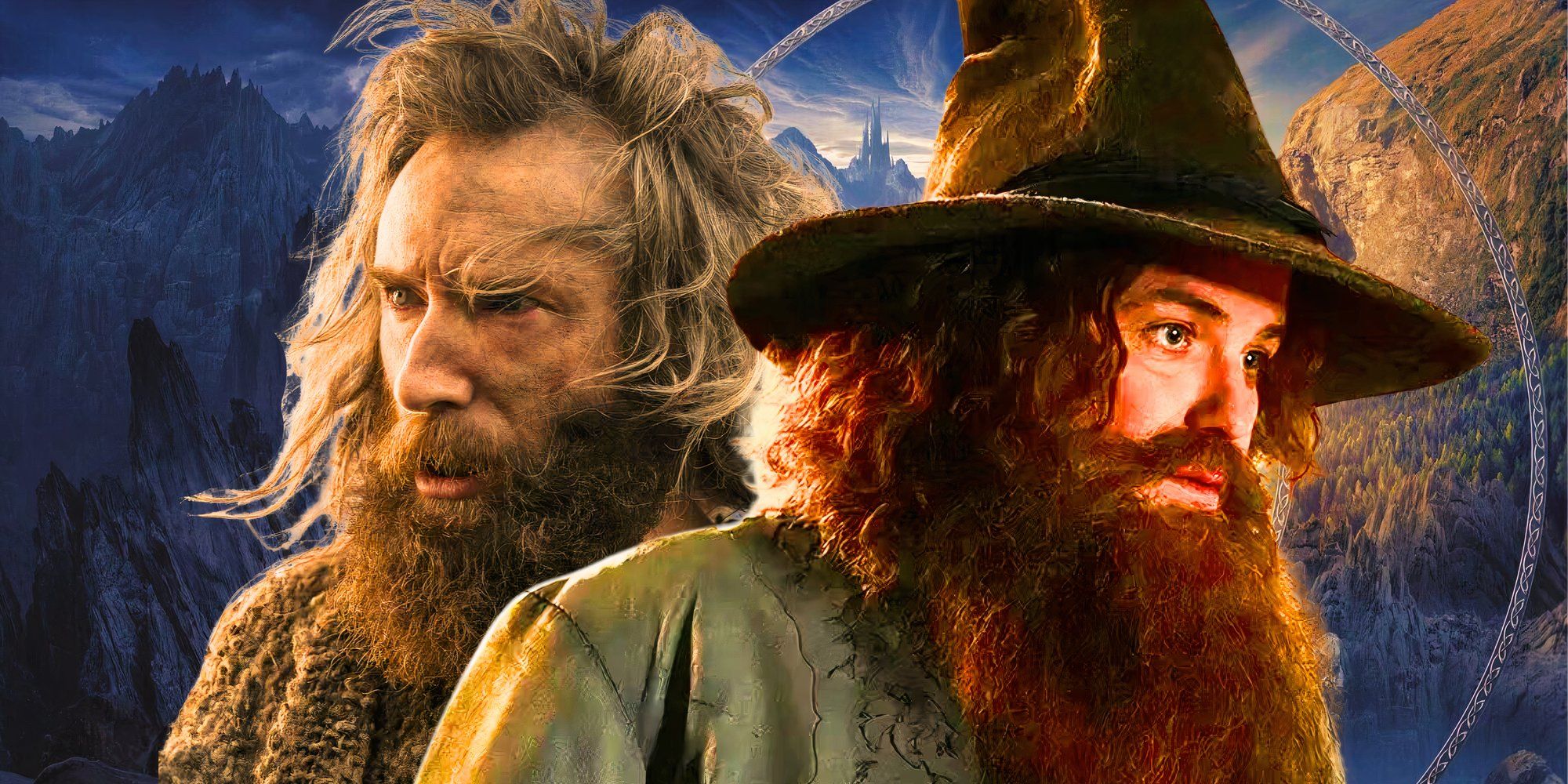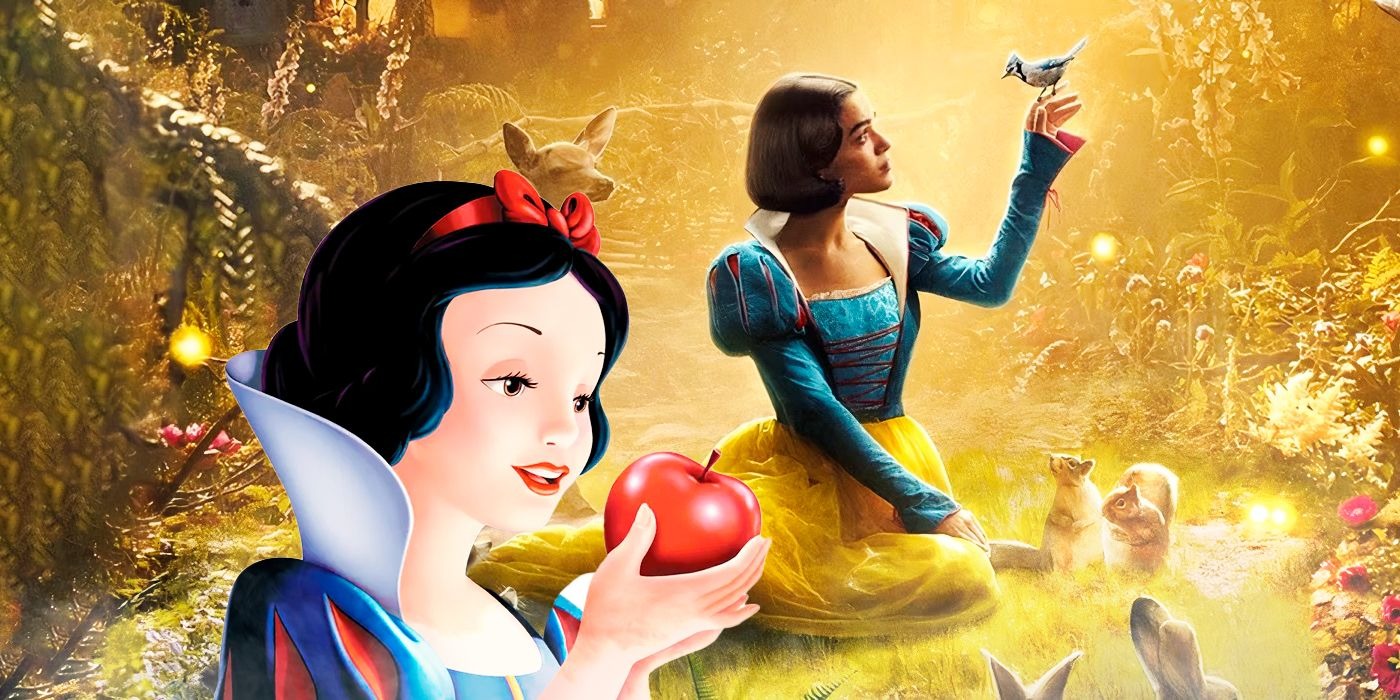The Lord of the Rings: The Rings of Power and House of the Dragon have a specific detail in common, and it’s precisely this that gets both into trouble. Of course, this goes beyond both TV shows being within the fantasy genre, or belonging to massively popular franchises. Instead, their similarity comes down to the format in which their source novels were written. J.R.R. Tolkien and George R.R. Martin approached their respective works similarly, and while this has allowed Rings of Power and House of the Dragon some creative freedom, it has also resulted in criticism.
Prime Video’s The Rings of Power is set in Tolkien’s Second Age of Middle-earth, thousands of years before the events of The Lord of the Rings. The famed fantasy author wrote about this period of time in, most notably, The Silmarillion, which was published in 1977 after Tolkien had died. Naturally, Martin’s Fire & Blood, the book on which House of the Dragon is based, was published far more recently and serves as a prequel to the author’s popular A Song of Ice and Fire series. The plot within these two books couldn’t be more different, but that isn’t to say they aren’t rooted in common ground.
Both Rings Of Power & House Of The Dragon Are Based On “Found Manuscript” History Book-Like Novels
The Books These Fantasy TV Shows Are Based On Can’t Be Adapted Like A Typical Novel

The Silmarillion and Fire & Blood aren’t written in the same format as the primary novels in Tolkien and Martins’ book series. Instead, they are presented as in-world history books, written by historians of Middle-earth and Westeros to record the goings on of their respective pasts. Both align with the “found manuscript” trope, allowing readers to become even more immersed in the world of fantasy since the stories within are presented as historical facts. However, like real history books, The Silmarillion and Fire & Blood only provide the perspective of historians, not the discussed characters.
Rings of Power has the benefit of having more source materials than House of the Dragon. Of course, Tolkien spent years of his life writing multiple versions of his stories from different perspectives (typically different Elven historians). These cleverly come with inconsistencies, just like real-world history would. This means that Prime Video has to sort through, pick its own version of the truth, add more context, and establish a fresh story that plays out in real-time rather than simply being a reflection of the past.
Rings Of Power Can’t Avoid Making Changes To The Story (Just Like House Of The Dragon)
Prime Video & HBO Have To Add Context & Additional Perspectives

A direct adaptation of such novels would be impossible—not to mention pretty boring.
Of course, this has gotten both Rings of Power and House of the Dragon into trouble. It’s common practice for a fanbase to criticise a screen adaptation when it makes changes to the book, and the same has been true for the Prime Video and HBO series. However, in these cases, much of this backlash isn’t entirely fair. A direct adaptation of such novels would be impossible—not to mention pretty boring. There must be added context from multiple angles, allowing audiences to see why certain events occurred rather than only learning about what happened in these fictional histories.
Why Rings Of Power & House Of The Dragon’s Unique Source Novels Are A Benefit (Despite Criticism)
The Necessity For Changes Is All Part Of The Fun

House of the Dragon has been a stupendous example of why adapting a book like Fire & Blood is beneficial. Private conversations between characters would never be known to any Westerosi historian, but they add context to the public decisions and events recorded in the book. The secret chat between Rhaenyra and Alicent in House of the Dragon season 2 perfectly demonstrates this. HBO completely invented this scene, but it makes sense that it wouldn’t have been in the book since the public never knew about it. It’s moments like these that make such adaptations so fun.
It’s better to think of these series as historical dramas. They may play with “fact” a little, but that’s all part of the fun.
Rings of Power has thrown in several similar moments and features. For example, Harfoots certainly existed in Middle-earth during the Second Age, but Elves took no interest in them, and they are, therefore, never mentioned in The Silmarillion. Of course, Tolkien’s works have been around for decades, which means that fans are fiercely protective over the stories contained within. It’s for this reason that Rings of Power has been so heavily criticized. Still, it’s better to think of these series as historical dramas. They may play with “fact” a little, but that’s all part of the fun.

